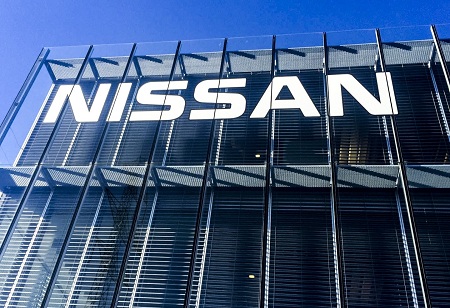
Nissan proposes to make India global hub for fossil fuel vehicles

 At a time when several of the Japanese company's manufacturing facilities in Europe, Japan, China, and the US are concentrating on the production of electric vehicles, Nissan Motor Co. is considering using India as a global base for manufacturing vehicles that run on fossil fuels and their components.
At a time when several of the Japanese company's manufacturing facilities in Europe, Japan, China, and the US are concentrating on the production of electric vehicles, Nissan Motor Co. is considering using India as a global base for manufacturing vehicles that run on fossil fuels and their components.
By the end of the decade, 44% of the company's lineup is expected to be electrified internationally, giving Nissan global chief operational officer Ashwani Gupta the chance to serve both new internal combustion engine (ICE) vehicles and aftersales operations in India.
"In Japan we (will) have the Tochigi plant fully electrified. In the United States, in Canton, one line will be electrified; in China, we have one plant electrified; Europe will be fully electrified," he said. "But then, 44% is electrified, which means 56% still remains ICE. Plus the customers who have bought ICE will need after-sales parts. We are working on optimisation of the global footprint."
India has three great opportunities to move forward, "to maximise opportunities for ICE engine and ICE engine components for OEMs and also for aftersales, to become a global industrial hub for BEVs (battery electric vehicles), and to support global OEMs with software development," he said.
The action follows the Renault-Nissan Alliance's announcement on Monday of a new investment of 5,300 crore in India as part of the second stage of its business transformation plan to increase operations globally. Starting in 2025, this cash will be used to launch six locally developed automobiles on the local market, all of which will be exported to other markets.
In fact, India will be the sole manufacturing hub for the left-hand drive Magnite, an A-segment electric vehicle, and two SUVs Nissan has scheduled for launch, confirmed Gupta. "The A segment EV will be manufactured in India, and we are looking at (shipping to) other markets ...all markets like Latin America, Brazil, Chile, Argentina, may be many markets in the Middle East (which) are (not) prepared for economies of scale. We are opening up those doors (so) that India is not limited to geography-friendly locations but also has access (to markets) where products need to be competitive," he said.
Gupta emphasised that with the company firming up its operations in markets like the US, China, Japan and Europe over the last three years, the focus has now sharpened on India. "Now we want to shift our focus to markets which are (not only) self-fuelled by their domestic economies but also taking advantage of geopolitics. India has tremendous growth potential moving forward," he said.
The new vehicles planned for launch mid-decade onwards will help Nissan more than double its market coverage to 40% (from the current 15%) and "will naturally" help company grow its share 2.5 times (from about 1%), said Gupta